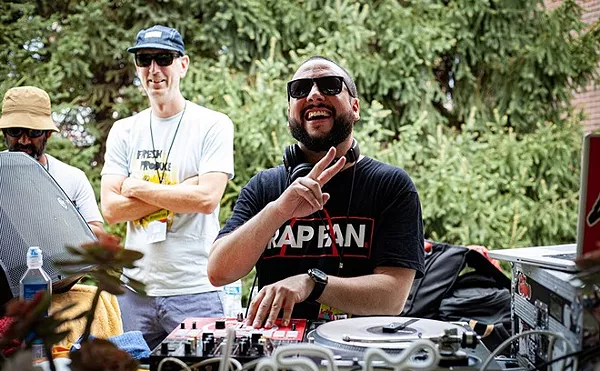Ike Wister Turner died today in San Diego. He was 76.
Every obit, blog post, and newscast will not fail to mention his despicable treatment of his ex-wife Tina Turner -- so consider it mentioned.
What those voices will not tell you is what you can only hear and feel in the urgency and ambition of his music. From the rock & roll-christening fuzzed guitar on "Rocket 88" (riffs actually played by Willie Kizart; Turner played the triplet-driven boogie piano) to his psychedelic gospel funk; from his unvarnished tremolo on uncountable electric blues singles to the black-power groove of the instrumentals he recorded with another St. Louis master, Oliver Sain; from his transformation of rhythm & blues into rock into soul (and then back again), to his electrification of the wildest stage spectacles that pop music had ever seen, Ike Turner deserves the appellation visionary -- and can hold his own with touchstone figures such as Scott Joplin, Chuck Berry and Miles Davis.
St. Louis -- nay, the nation -- owes him a debt. And not just for his music, but for his contributions to our cultural life. During the '50s, he refused to play segregated venues in East St. Louis -- and as a result, those venues were desegregated. Ike helped Tina choreograph her moves -- and then got the hell out of the way so she could move on her own. (Mick Jagger, among countless others, would never be the same.)
Born in Clarksdale, Mississippi, he could have been a commanding blues figure (he had the guitar chops and the repertoire), but despite his reputation for ego-mania, his musical ideas were ultimately collective and collaborative, and couldn't be bound by pure blues. He was a force that could bring out greatness in others -- whether it was Otis Rush, Howlin' Wolf, Fontella Bass or Tina.
Tom Ray, DJ and co-owner of Vintage Vinyl, described Turner's appearance at the 50th Anniversary show for the Oliver Sain Soul Revue at the Pageant: "He stole the show the moment he sat down at the piano. Oliver had this big band -- ten, twelve pieces. We were watching Ike direct the band with his shoulder blades, his nose, his eyebrows, his fingers, his mouth. He was cueing every section, and they were following him."
The myth of Stagger Lee dies hard, but Turner was no myth. He was the baddest of the baddest black men, and no one should (or will) ignore the brutality of his record. But that brutality should not (and cannot) drown out the wild, soulful, electrifying sounds and style of a true American original.
-- Roy Kasten





